
In a second guest lecture organised for students of the University of Stuttgart, which took place on 27 November, Sónia Alves explored how theoretical perspectives can help make sense of urban change and housing system transformations.

On 23 October, Zlata did a guest lecture for students of Stuttgart University, in which she presented lessons from her own experience working on Roma housing and settlement transformation in Serbia.

In September, Domus Social organised a session of ‘Lá Fora’, a series of exchange sessions for staff members, in which they invited DASH participant Els Keunen from the University of Stuttgart to give a presentation about social housing in Germany.
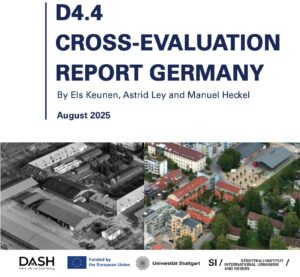
The latest DASH deliverable, the cross-evaluation report for Germany, was submitted at the end of August 2025. It details the lessons learnt during the thematic workshop held in Germany in May 2025.

In August, Ivana Momic and Aleksandar Jevtic, members of the Serbian Urban Planning Association, visited their colleagues, urban planners from Braga and Porto. After recognising common goals and similar interests in social housing, SUPA’s members decided to visit them to gain insight into the planning documentation and planning practice.
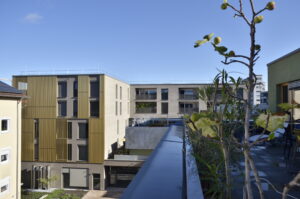
As members of the Housing and Building Sector of a Portuguese cooperative, our research in Tübingen focused on two main perspectives: 1) the role of Dachgeno Wohnen Tübingen as an “umbrella” housing cooperative; and 2) the role of the state in the development of affordable housing through collective-ownership housing cooperatives.
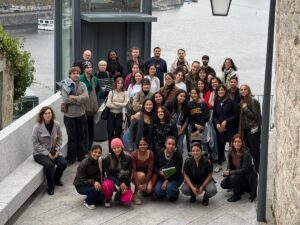
A group of 37 students and lecturers from the University of Stuttgart spent a full week in Porto and Gaia to get to know the context and learn about affordable and social housing.
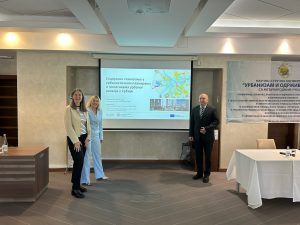
The 21st International Scientific and Professional Conference "Urbanism and Sustainable Development" took place in late May 2025 in Srebrno Jezero, Serbia. The conference was organized by the Serbian Association of Urban Planners (SUPA).
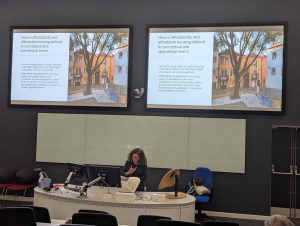
On 6 March 2024, Sónia Alves, on behalf of herself and Dulce Lopes (professor of Planning Law at the Faculty of Law of the University of Coimbra), presented the paper “Land policies for affordable housing – the case of Portugal” at the 19th annual conference of the International Academic Association on Planning, Law, and Property Rights (PLPR), 3-7 March 2025 in Cardiff (Wales, UK).

On February 18th, 2025, DASH member Marco Allegra participated in the inaugural session of the City and Regional Sustainability Transitions Webinar Series of the Regional Studies Association. Dr. Allegra delivered a talk on affordable social housing based on the work of the DASH project, titled “Perspectives on Social Housing from Different European Countries”









